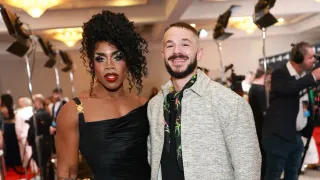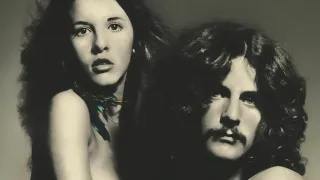
2 hours ago
Former MTV Star Davis Mallory Rejects “Gay Christian” Label, Cites Spiritual Awakening
READ TIME: 3 MIN.
Davis Mallory, the former star of MTV’s Real World: Denver and The Challenge, made headlines this week after announcing that he no longer identifies as a “Gay Christian,” a label he previously embraced publicly for nearly two decades. In a video shared on Instagram on Monday, Mallory addressed a crowd at a church event in Hawaii, detailing what he described as a spiritual transformation catalyzed by recurring dreams and renewed faith. The announcement comes as a significant moment in the ongoing dialogue between LGBTQ+ identity and religious belief, drawing attention from both communities and prompting important questions about affirmation, inclusion, and personal testimony .
Mallory’s video testimony begins with a recounting of his upbringing in a devout Christian household, where his parents served as worship leaders before divorcing when he was ten. He suggested that the absence of a father figure influenced his path toward what he termed the “gay lifestyle,” a phrase that has drawn both support and criticism for its implications and historical use. “I was on a television show, ‘The Real World,’ and I came out on the show as a gay Christian, but God really pulled me out of that lifestyle a year ago,” Mallory stated. He described receiving “vivid dreams from God” that he interpreted as spiritual guidance away from his previous identity .
Mallory’s remarks, delivered during a church event and subsequently posted to Instagram, quickly circulated within LGBTQ+ and entertainment media. In the video, Mallory expressed empathy for those who feel excluded from religious spaces, saying, “I definitely have a heart for the fatherless and a heart for that community, because I feel like they feel like there’s not a place for themselves in these doors and I wish we could open up and invite them in and let them know there is a place for them and really just show the good that God has in store for them” .
Following the performance, Mallory addressed questions from fans on social media regarding his sexual orientation. In a post on Instagram, he responded to inquiries about whether he still considers himself gay, stating, “Do I find men beautiful? Yes, of course. Do I find women beautiful? Yes, of course. We are created in God’s image and in His likeness. The beauty of creation gives glory to the Creator.” When pressed about his sexual attraction, Mallory reframed the discussion around the purpose of sex and morality, rather than explicitly labeling his orientation .
Mallory further explained that he did not participate in “conversion therapy,” a controversial and widely condemned practice, but instead cited spiritual experiences as the catalyst for his change. “Not really,” he replied when asked directly about conversion therapy. “But God started giving me vivid dreams and healed me from trauma and showed me the spiritual warfare I was under” .
Mallory’s announcement has prompted a range of reactions from LGBTQ+ advocates, faith leaders, and fans. Many have expressed concern about the implications of language such as “pulled out of the gay lifestyle,” given its historical association with conversion therapy and the marginalization of LGBTQ+ people within religious contexts. Others noted the importance of respecting individual experiences while emphasizing the need for faith communities to remain affirming and inclusive of all sexual orientations and gender identities .
Mallory’s story is particularly resonant given his visibility as a reality TV personality who came out publicly on MTV in 2006, when LGBTQ+ representation on mainstream media was far less common. His openness about his journey has helped to foster conversations about the intersection of faith and identity, but his recent statements have also reignited debates about the role of religious teachings and spiritual experiences in shaping sexual orientation .
LGBTQ+ organizations have reiterated that sexual orientation is not a choice and have cautioned against narratives that suggest otherwise. The Human Rights Campaign, GLAAD, and other advocacy groups have consistently emphasized that attempts to change sexual orientation, whether through therapy or spiritual means, can be harmful and are not supported by scientific research .
Mallory’s testimony reflects a deeply personal journey, invoking themes of faith, family, and self-understanding. While his experience is unique, it highlights broader issues faced by LGBTQ+ individuals who navigate religious environments that may not always affirm their identities. Studies have shown that LGBTQ+ people of faith often face additional challenges, including exclusion, internalized stigma, and pressure to conform to heteronormative expectations .
Advocates stress the importance of creating inclusive religious spaces and affirming that all people, regardless of orientation or gender identity, are deserving of dignity and respect. Many faith communities and denominations now openly welcome LGBTQ+ members and leaders, offering resources and support for those seeking to reconcile their spirituality with their authentic selves.






